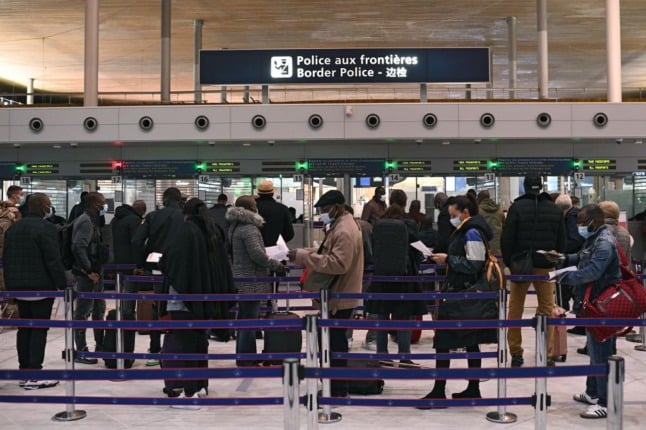Having health cover when you are travelling is of course always a good idea, but as Brits move into the world of non-EU travel there are several circumstances where having insurance is no longer merely advised, but compulsory.
READ ALSO What Brexit has changed for British visitors to France
Tourists/short visits
Pre-Brexit many Brits relied on their European Health Insurance Card (EHIC) for travel to France. This is now being replaced by a similar card known as GHIC (UK Global Health Insurance Card). However these only cover emergency healthcare costs and neither cover the cost of repatriation back to the UK if necessary.
It was always advised that tourists and visitors took out their own travel insurance in addition to the EHIC, but this has now become compulsory in many circumstances.
All non-EU arrivals in France, including Brits, who are travelling visa-free for a period of less than 90 days can be asked at the border to provide several things, including:
- Proof of accommodation during your stay (booking for hotel, gîte, Airbnb or B&B for tourists, second-home owners may need to provide proof of address such as a utility bill and if you’re staying with friends or family you may need an Attestation d’accueil)
- A return ticket or the means to acquire one
- Sufficient financial means to cover basic costs during your stay. The guideline figures for this are; €65 per day if you have a hotel booking, €120 per day if you have no hotel booking, €32.50 per day if you are staying with friends or family
- An insurance certificate covering all medical and hospital expenses for which you may be liable for the duration of your stay in France, as well as medical repatriation costs and expenses in the event of death
The specific requirement for repatriation costs means that an EHIC or GHIC on its own is not sufficient. The insurance can be either travel insurance or health insurance, provided that it includes cover for repatriation.
If you have private health insurance cover in the UK it may or may not cover trips abroad and repatriation, so check your policy.
Reports on the ground from Americans, Canadians and Australians – who have always been subject to these rules – suggest that enforcement is far from universal, but French border guards are within their rights to ask and you can be turned away if you don’t have the correct paperwork, including insurance.
Long stays
If you want to stay in France for longer than 90 days in every 180 you will need a visa, and certain types of visa also require proof of full health cover.
For people who don’t intend to work while in France – such as many second-home owners – the visitor visa is the most common option.
EXPLAINED How to get a French visa
This one-year visa will allow you to spend as much time as you like in France over the course of the year, but when applying for one you will need to supply several things including proof of financial means and proof of health cover.
The French visa wizard site states that the minimum required coverage level is €30,000 – including medical repatriation, and emergency and/or hospital treatment. The medical repatriation requirement again means that an EHIC or GHIC is not sufficient. There are talks ongoing regarding the acceptance of the GHIC, but at the time of writing nothing is confirmed.
Applicants whose coverage is lower than this may find their visa application rejected.
This does not have to be a specific health insurance policy, you can use your travel insurance as long as the policy meets the specified requirements.
The policy must also cover the entire period of the visa you are applying for (usually one year).
Residents
If you are a British resident who is returning to France you will only have to show your proof of residency at the border – either a carte de séjour residency permit or a long-stay visa, there is no requirement to show extra health insurance.
Some British residents who are covered by the Brexit Withdrawal Agreement are still entitled to an EHIC but if you live in France you are also entitled to register in the French health system and receive a carte vitale, which covers most health costs while you are in France. Here’s how to register.
What type of insurance?
The health cover can be either via travel insurance or private health insurance, and travel insurance is generally cheaper.
The minimum cover level of €30,000 would cover almost all travel insurance policies, but not all policies cover medical repatriation, so check this on any policy that you buy.
The policy must also cover the entire duration of your stay in France or – if you are applying for a visa – the entire duration of the visa.
How much does the insurance cost?
Obviously the cost of a health or travel insurance policy depends on the age and state of health of the policy holder, but for older people and those who have health conditions it can be expensive.
Using a UK price comparison site, we searched for travel insurance with the appropriate level of cover for a couple in their 70s, without major health conditions and were quoted around £250 for an annual multi-trip policy.
This becomes more expensive for people with serious health problems, and if you have been diagnosed with a life-limiting illness, cancer or are on the waiting list for hospital treatment then you may not be able to get insurance at all.




 Please whitelist us to continue reading.
Please whitelist us to continue reading.
Member comments